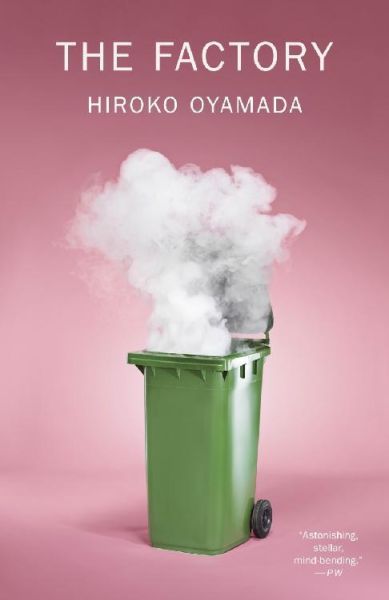The Working Life
The Factory
By Hiroko Oyamada

8 Sep, 2021
Hiroko Oyamada’s 2013 The Factory is a stand-alone mildly surrealistic novel. The 2019 English translation is by David Boyd.
The Factory! Vast, and enigmatic, it provides employment to the masses. Boss Goto may seem disorganized, but he manages to find appropriate positions for each new hire.
For Yoshiko Ushiyama, a liberal arts major drifting from contract to contract, a position in the Factory is a dream come true. She might have preferred a full-time position, something more challenging than shredding documents. Still, work is work and at least this way she is employed at the facility that made such an impression on her as a child.
For Yoshiko’s former-systems-engineer brother, his temp position is a humiliating come-down. His mood is not improved by the fact that his ability to view his girlfriend with disdain is seriously undermined by the fact the engineer owns his temp gig to his girlfriend, who pulled strings at her temp agency. His computer expertise is utterly irrelevant in his new job, which involves proofreading printouts on paper.
Academic Yoshio Furufue was hired for his knowledge of moss and because he was superfluous to his university department, which strong-armed him into accepting the Factory’s offer. In this case, there’s a good reason for the offer: the Factory is determined to go green. Too bad that the job is too large for one man, particularly when he has no idea how to apply his expertise to the task.
These folks are but three cogs in the vast machine that is the Factory, that vast, glorious enterprise whose extent and true purpose may be beyond human ken.
~oOo~
Each character stays mostly in their own tiny niche. They explore the nearer surroundings sporadically, but … the Factory is a vast complex larger than a city. Nobody can know it all. No one working there has sufficient perspective to understand how their position fits into the grand scheme of things. Indeed, they cannot be sure that there is a grand scheme into which they are fitting. Nor can they be sure their labour accomplishes anything — with the exception of Yoshio Furufue, who can be pretty sure he isn’t accomplishing anything.
This book attracted critical reviews that used words like “Kafkaesque.” I can see why people might describe a huge, seemingly boundless complex that consumes human lives to no discernible end with such a word. And yet, the book doesn’t feature the undercurrent of existential dread I expected. Sure, the Factory is incomprehensible and possibly pointless, but it pays its employees well. The Factory may be dehumanizing but everyone in it has enough food and comfortable shelter. The thriving non-human ecosystem in and around the factory is only a little bit ominous. As vast, alien enterprises go, the Factory is not that bad. In fact, it compares very favorably to many large human institutions.
Readers may not have considered the idea of an amiable Kafkaesque tale. This novel shows that such a thing is possible.
The Factory is available here (Amazon US), here (Amazon Canada), here (Amazon UK), here (Barnes & Noble), here (Book Depository), and here (Chapters-Indigo).
